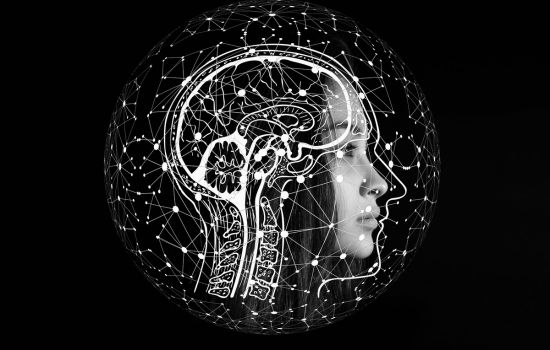THE brain plasticity it is the power to adapt and transform the brain. However, the human brain is an incredibly complex and dynamic organ, capable of adapting and changing throughout life. The brain's ability to reorganize itself, form new connections, and adapt to different experiences and environments is known as brain plasticity.
In this article, we will explore the concept of brain plasticity, its meaning and importance, as well as some of the implications it has for our understanding of the human mind and the treatment of neurological disorders.
What is Brain Plasticity?
Brain plasticity refers to the brain's ability to change its structure and function in response to external and internal stimuli. But this dynamic ability allows the brain to adapt to changes, learn new skills, and recover from injuries or illnesses.
In the past, it was believed that the brain was a static entity and that its development was limited to childhood. However, recent scientific studies have demonstrated that the brain is highly malleable and capable of structural and functional changes throughout life.
Types of Brain Plasticity
There are different forms of brain plasticity, each playing a fundamental role in different stages of development and learning. Because two of the most studied forms of brain plasticity are.
Synaptic plasticity: It refers to the ability of synapses (connections between neurons) to strengthen or weaken in response to neuronal activity. This form of plasticity is the basis of learning and memory processes.
Structural plasticity: involves the brain's ability to reorganize its physical structure. This includes the formation of new connections between neurons, the growth of new neurons (neurogenesis) and the reorganization of existing neural circuits.
Structural plasticity is particularly important in cases of recovery from brain injury and adaptation to environmental changes.
Importance of brain plasticity
Brain plasticity plays a fundamental role in our development, learning and adaptation. It is the biological basis of learning and memory, allowing us to acquire new skills, store information and adapt to new contexts.
However the Brain plasticity also plays a critical role in recovery from brain injuries. For example, after a stroke, healthy areas of the brain may take over functions previously performed by injured areas. This shows the brain's incredible ability to reorganize itself and restore lost functions.

Furthermore, brain plasticity has important implications for the treatment of disorders neurological. Research shows that specific interventions, such as occupational therapy, physical therapy, and non-invasive brain stimulation, can promote brain plasticity.
Scientific evidence
Non-Invasive Brain Stimulation: Non-invasive brain stimulation, such as transcranial direct current stimulation (tDCS) and transcranial magnetic stimulation (TMS), has been widely studied as a therapeutic approach to modulate brain plasticity in various neurological conditions.
These techniques involve the application of low-intensity electrical currents or magnetic fields in the scalp, which modify the excitability of underlying neurons.
A study published in the journal “Neurorehabilitation and Neural Repair” in 2019 examined the effects of tDCS on the recovery of stroke patients.
The results showed that non-invasive brain stimulation increased motor cortex excitability and improved motor function in patients with motor sequelae after stroke.
Additionally, TMS has been investigated as an intervention for neuropsychiatric disorders, such as depression. A study published in the journal “JAMA Psychiatry” in 2018 evaluated the effectiveness of TMS in treating treatment-resistant depression.
Reduce symptoms
The results indicated that TMS was effective in reducing symptoms depressants and produced lasting effects even after the end of treatment.
Occupational therapy: Occupational therapy is a therapeutic approach based on brain plasticity that aims to help individuals recover functional skills and adapt to adverse physical or cognitive conditions.
Occupational therapy involves the use of meaningful activities and functional to promote rehabilitation and independence.
A study published in the journal “Neurorehabilitation and Neural Repair” in 2016 investigated the effects of occupational therapy on patients with traumatic brain injury. The results showed that occupational therapy significantly improved patients’ cognitive function, functionality, and quality of life.
Furthermore, occupational therapy has been widely used in the treatment of neurological conditions, such as Parkinson's disease. A study published in the journal “Movement Disorders” in 2019 examined the effects of occupational therapy on improving motor function and quality of life in patients with Parkinson's disease.
However, the results indicated that occupational therapy was effective in improving motor function and reduce the motor symptoms of the disease.
Conclusion
Brain plasticity is a fascinating phenomenon that demonstrates the brain's ability to adapt, change and recover.
Therapeutic approaches based on brain plasticity, such as non-invasive brain stimulation and occupational therapy, have shown promising results in treating a variety of neurological conditions.
These therapeutic approaches help modulate neural activity, promote the growth of new connections and facilitate functional recovery. With more research and advances In this field, it is possible that new therapies based
in brain plasticity are developed, offering new treatment and recovery options for individuals with neurological disorders.
However, it is important to highlight that the application of these therapeutic approaches must be carried out by qualified and properly trained professionals. Each individual is unique and may respond differently to interventions based on brain plasticity.
Therefore, personalized treatment adapted to specific needs of each person is essential to achieve the best results.
With more research and advancements in this field, we can expect significant advances in neurological treatment and rehabilitation in the future.



